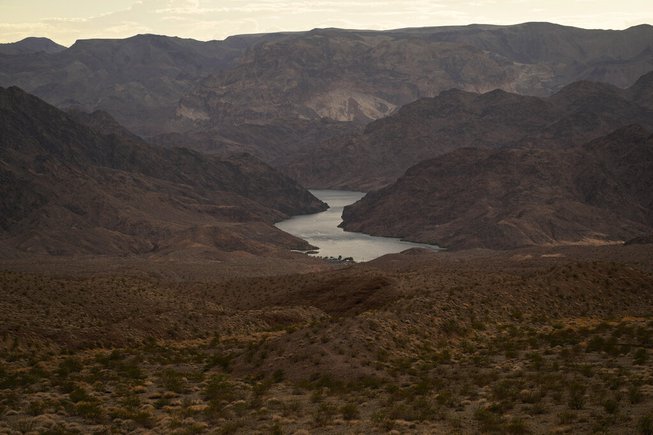
John Locher / AP
Water flows down the Colorado River downriver from Hoover Dam in northwest Arizona, on Aug. 14, 2022, near the Lake Mead National Recreation Area.
Monday, March 20, 2023 | 2:05 p.m.
WASHINGTON — The Supreme Court seems inclined to side with the federal government and a group of states in a dispute with the Navajo Nation over water from the drought-stricken Colorado River.
The high court was hearing arguments Monday in a case that states argue could upend how water is shared in the Western U.S. if the court sides with the tribe.
Water is a critical resource for the Navajo Nation. The mainstream of the Colorado River flows along the northwestern border of the tribe's reservation, which extends into New Mexico, Utah and Arizona.
And two of the river's tributaries, the San Juan River and the Little Colorado River, also pass alongside and through the reservation. Still, a third of the some 175,000 people who live on the reservation, the country's largest, don’t have running water in their homes.
The facts of the case go back to two treaties the tribe and the federal government signed in 1849 and 1868. The second established the reservation as the tribe's “permanent home" — a promise the Navajo Nation says includes a sufficient supply of water. In 2003 the tribe sued the federal government, arguing that it had failed to protect the Navajo Nation's water rights to the mainstream of the Colorado River.
A federal trial court dismissed the lawsuit, but an appeals court allowed it to go forward.
The federal government says it has helped the tribe get water from the Colorado River’s tributaries, but that no law or treaty requires the government to address the tribe’s general water needs. Three states, meanwhile — Arizona, Nevada and California — argue the Navajo Nation is attempting to make an end run around a 2006 Supreme Court case that divvied up water in the Colorado River’s Lower Basin.
